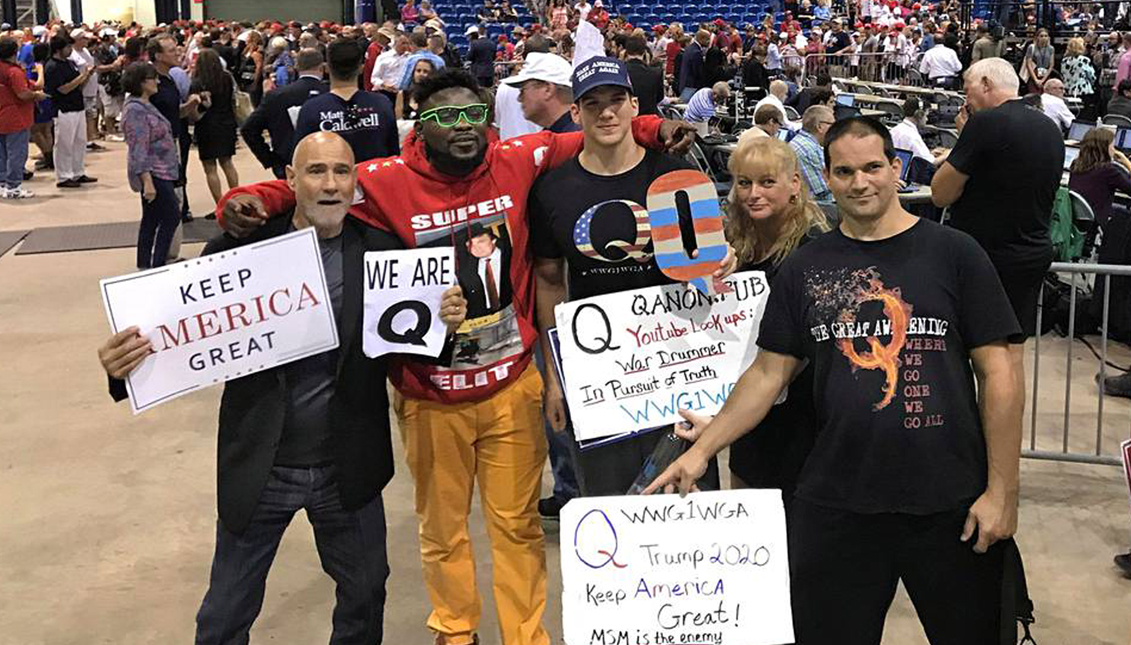
Spanish-language ads in Florida spread misinformation on the 2020 election
Joe Biden has a problem with the Latinx demographic, and it doesn’t stop at his connection with Latinx voters.
From WhatsApp to Facebook, an onslaught of anti-Biden misinformation is flooding Spanish-language social media in Florida, one of the biggest battleground states in the country.
The situation poses a threat to the Democratic presidential nominee’s already fragile relationship in Florida, especially as it has a large conservative Latinx population that may be fueling the situation.
Florida’s Latinx community is diverse — a mix of people with roots from multiple nationalities within Latin America. A large Republican-leaning Cuban population in Miami-Dade county is combined with a growing population of Democratic-leaning Puerto Rican, Columbian, Nicaraguan, Dominican, and Venezuelan backgrounds.
But it is the independent voters, who arrived in the U.S. as Spanish-speakers, that are less inclined to side with a particular party, meaning they are more likely to be swayed by, say, compelling allegations on social media.
This is the danger Biden is up against in the swing state.
Conspiracy theories surrounding a "deep state," QAnon, and billionaire Democrat philanthropist George Soros have become the regular content of Spanish-language YouTube channels, WhatsApp message chains and pro-President Donald Trump Facebook groups aimed at a Latinx audience.
Facebook — owner of WhatsApp — has already come under fire for letting political disinformation run rampant on its platform.
However little to nothing has been done to address the issue within the Latinx news consumers in Florida.
Claims like: “A Joe Biden win would put America in control of ‘Jews and Blacks.’ The Democratic nominee has a pedophilia problem” have caught fire, reported Politico on Sept. 14.
Since then, the disinformation hasn’t dwindled.
CONTENIDO RELACIONADO
In terms of the Latino vote, the onslaught of information in Florida may further skew views on the Democratic nominee in favor of Trump’s messaging. It’s a tremendous volume of ads that is overshadowing credible news.
There are many reasons why.
Partly, it is an issue of underreporting. The onslaught didn’t happen overnight, but it wasn’t until around 50 days before the General Election that the issue became widely known.
This also raises an issue within the Latinx demographic. With slim pickings for news, many are limited to Univision or Telemundo.
It’s a product of the cable and digital divide in the media between English language news and Spanish-language news in the United States. From that, what happens if someone wants to break from that and look for their own news, or independent sources? Where do they end up?
This has posed a vulnerability that QAnon and like-minded actors have ventured to target — with success.
“Conspiracy theories are difficult to displace because they provide explanations for events that are not fully understood, such as the current pandemic, play on people’s distrust of government and other powerful actors, and involve accusations that cannot be easily fact-checked,” said Kathleen Hall Jamieson, Annenberg Public Policy Center director and study co-author, in a statement to Time.
And in a year in which Latinx individuals have felt the harshest outcomes of the COVID-19 pandemic and the year of the presidential election, this was the year to do it.










DEJE UN COMENTARIO: